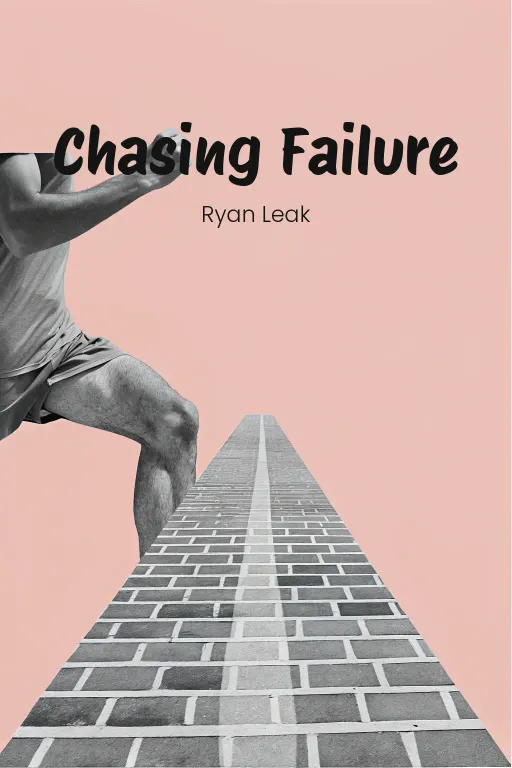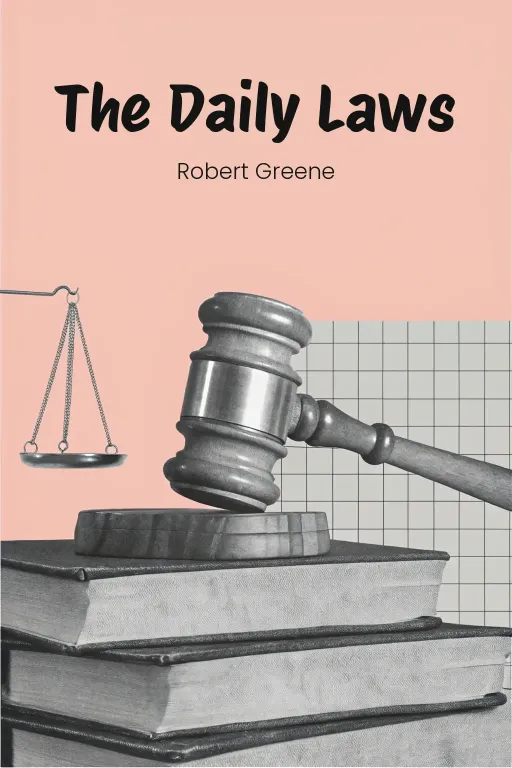
Mind Control: Calm, Clarity, Action Now!
Podcast by Beta You with Alex and Michelle
Change Your Thoughts, Change Your Life
Mind Control: Calm, Clarity, Action Now!
Part 1
Alex: Hey everyone, welcome back! Today we're tackling something super relevant to all of us: our thoughts. Ever feel totally swamped by what's going on in your head? Or notice how one bad thought can just ruin your whole day? You're definitely not alone, and luckily, there are ways to actually take charge of this. Michelle: Exactly, Alex. I mean, sometimes my brain feels less like a peaceful retreat and more like a 24/7 news channel – constant alerts, zero chill. So, what if we could, you know, filter out some of that noise and really focus on what’s important? That’s where today's book comes in, right? Alex: Spot on! We're diving into Think Straight: Change Your Thoughts, Change Your Life by Darius Foroux. The book is all about mastering your thoughts– learning how to sort through the mental clutter, practice thinking on purpose, and ultimately, build a life that really vibes with what you believe in. Foroux mixes classic wisdom with actionable tips to shift us from mental chaos to clarity. Michelle: Okay, so we're going to break this down into three key ideas, right? First, we'll look at how your thoughts are basically the master plan for what you do – what you think really drives your actions. Second, we'll get into some practical ways to "filter" your thoughts, so you're not just bombarded with mental spam all the time. And third, we'll talk about how getting a handle on your thoughts can lead to a life that feels both calm and like it has a real point. Alex: Yeah, it's like gardening for your mind – you're nurturing what you want to grow and getting rid of the stuff that's holding you back. So, whether you're super into self-help or a bit skeptical, there's something in this for you. Let's dig into the power of thinking straight! Michelle: Or at least, let’s find out if it’s even possible, right?
The Power of Thoughts
Part 2
Alex: Okay, so to start, let's talk about why our thoughts are so crucial. Foroux puts it really well: “You are what you think.” It sounds simple, right? But it’s the idea that our thoughts actually shape our lives. Every action, every decision, it all starts with a thought. So, if we want to change what we do, or what we achieve, we have to begin with our thinking. Michelle: Right, Alex, but is that too idealistic? I mean, we all know someone who posts inspirational quotes constantly but doesn’t actually do anything. How do we make this practical? How does mastering our thoughts translate into real results? Alex: That's a really good point, Michelle. Let's take William James, for example. As the book mentions, he's this brilliant philosopher and psychologist. But in his twenties, he “really” struggled. He was dealing with depression, an existential crisis, the whole thing. Then he discovered the concept of free will. This idea, the power to choose his beliefs and guide his thoughts. That was his turning point. He consciously started focusing on positive, constructive thoughts, and that shift became the foundation for all his later work. Michelle: Okay, so James decided to "choose his thoughts." But how do you just do that when your mind's racing at 3 AM, replaying some awkward thing you said years ago? Alex: That’s where Foroux introduces intentionality. He says you can't stop every random thought, because our brains are kind of chaotic, but you can choose which thoughts you nurture. Recognize the ones that aren’t helpful, and then deliberately let them go. It’s like training a muscle, it gets stronger with practice. Michelle: So, instead of agonizing over that 3 AM thought, I should… what? Have a serious talk with myself? "Brain, knock it off, we're not doing this now"? Alex: Almost! Foroux suggests having a structure in place. He suggests a "thought audit." When a thought pops up, ask yourself: "Is this helping me? Is it moving me closer to my goals?" If the answer is no, then redirect your focus. It's about shifting from intrusive thoughts to intentional ones. Michelle: Intrusive to intentional. I like that. But practically speaking, how do you redirect without just overthinking the redirection itself? Alex: That's an excellent question. Foroux “really” emphasizes grounding your focus with specific, actionable strategies. For example, journaling helps with those runaway thoughts. When you write them down, you’re externalizing them and then reflecting. Are these thoughts useful, or am I just going in circles? The act of writing brings in clarity. It’s like using a flashlight in a dark room - you suddenly see things more clearly. Michelle: A flashlight, huh? So, we're exploring the caves of our minds now? I can dig that. But let me push back a little – what about deeply ingrained negativity? I mean, it's relatively easy to dismiss the random worry, but what about chronic self-doubt or anxiety? You can’t journal your way out of that, right? Alex: You're right, and that's why Foroux emphasizes the importance of consistency. Thought mastery isn't a one-time thing; it's a daily process. And for those “really” deep-rooted patterns, he suggests reframing. Instead of interpreting challenges or doubts as threats, start viewing them as opportunities for personal development. It's not about suppressing the negativity but choosing, consciously, to interpret things more constructively. Michelle: Okay, but let's be real, that's way easier said than done. Like, if I just botched a project at work, my first thought won’t be, "Great, an opportunity for growth!" It’ll probably be, "Well, there goes my career." Alex: Totally relatable, Michelle. That's why Foroux suggests starting the reframing before you're in the middle of a crisis. Think of it as building mental resilience proactively. For example, he encourages himself to ask himself, in calmer times, "How have setbacks led to growth for me in the past?" By doing this consistently, you’re building what you might call cognitive muscle memory. So, when things go wrong, you’re a little more prepared to respond constructively instead of just reacting emotionally. Michelle: Prepping the mental toolkit before the storm hits. I like it. Let me throw an analogy at you – it’s like debugging your brain. You identify faulty lines of code, and rewrite them, so your mental software runs more smoothly under pressure. Alex: Exactly. And once you start developing productive thought patterns, it leads to what Foroux calls "thought-action alignment." Essentially, your mindset starts driving actions that reflect what matters to you. That's how clarity and purpose emerge - not just thinking about what matters, but doing something that matters. Michelle: Which brings us full circle to "You are what you think." It's not about thinking your way into some magical success; it's about strategically using your thoughts to fuel the actions that take you where you want to go.
Practical Strategies for Thought Management
Part 3
Alex: So, understanding the power of thoughts is one thing, but how do we actually “manage” them? That's the key, right? Now that we know why mastering our thinking is crucial, let’s unpack the actionable strategies that Foroux talks about. He outlines three main methods: filtering your thoughts, letting go of overthinking, and really focusing on what's within your control. It's all about giving you specific tools you can use every day, building on everything we've discussed. Michelle: Okay, Alex, now we're getting somewhere. Actionable strategies, I like the sound of that. Let's start with filtering your thoughts. Can you break this down for us? I mean, what does that actually “mean”? Is it like, uh, a mental spring cleaning, tossing out the junk? Alex: Something like that! Filtering your thoughts basically means being really selective about what you allow to occupy your mind. Foroux makes the point that in today's world, our minds are just drowning in information – social media, endless news cycles, everyone's advice…it's an overload. Filtering is about stepping back and asking, "Is this thought or information actually useful? Does it align with my goals and values?" If it doesn't, you let it go. Michelle: Okay, easier said than done, right? Practically speaking, how does anyone decide which thoughts are worth keeping and which ones to toss? I mean, come on, I'd love to just hit the delete button on every stressful thought, but they're just so annoyingly persistent. You know? Alex: Exactly, and that's where his concept of mental heuristics comes in. He explains that we all use these mental shortcuts – things like "social proof," which is our tendency to follow what others are doing. Now, heuristics can simplify decision-making, sure, but they can also kind of mislead us if we just rely on them uncritically. So, Foroux suggests being intentional. When you're facing decisions influenced by outside advice, for example, pause and ask yourself, "Does this align with my priorities, or am I just unconsciously following the crowd?" Michelle: Right, like when you stick with the familiar, like the safe job or the safe relationship, because it's easier than stepping outside your comfort zone. But then you're just...stuck. Staying safe starts to feel kind of dangerous, ironically. Alex: Exactly! That’s why filtering isn’t just about saying no to distractions; it's about saying yes to thoughts and decisions that align with your growth. Think of it like tuning a radio, maybe? With intentional filtering, you're dialing out the static so you can really clearly focus on the station, the thought, that's playing the music you actually want to hear. Michelle: Well, some of us love static, Alex. It gives our brains something to chew on! Which brings us to the next tactic: letting go of overthinking. Because, honestly, how do you turn down the noise when your brain thinks its job is to spin up scenarios like a bad TV channel you just can't shut off? Alex: Letting go of overthinking is huge, and Foroux nails it by making a distinction between reflection and rumination. Reflection is productive, it helps you learn or problem-solve. Rumination, on the other hand, traps you in a loop of "what ifs" and fears that go nowhere. Michelle: Exactly. Reflection is like that thoughtful best friend you call for advice. Rumination is that other friend who just loves drama and keeps dragging you back into the same argument you had three years ago. Alex: Yes! Perfect metaphor, Michelle. To cut out that drama, Foroux suggests tools like journaling. I mean, by writing your thoughts down, you kind of externalize them. It’s like decluttering a messy desk – all of a sudden, you can really see what's truly important. He even shares how journaling helped him realize he was saying yes to obligations out of fear of judgment, not because he genuinely wanted to! Once he saw that pattern on paper, it just became easier to make intentional choices. Michelle: Journaling makes sense, as a way to hold up a mirror to your brain, maybe? But what if someone isn't a writer? Do you just sit there staring at a blank page, waiting for it to interrogate you? Alex: That’s fair. Journaling isn't necessarily about writing prose or creating a masterpiece. More like brain-dumping, you know? Foroux offers simple prompts, like "What am I worrying about?" or "What would be the smallest step I can take to move forward?" And, if writing doesn't work, mindfulness practices are another way to break free from those overthinking loops. Anchoring yourself in the present moment with techniques like deep breathing can disrupt that cycle. Michelle: Okay, I'll admit it, the idea of just focusing on, say, my breath during a freak-out seems a little counterintuitive. My brain's out here trying to wage a world war, and I'm supposed to just chill? How does that even help? Alex: It’s not about ignoring the problem; it’s about creating a mental pause. When you focus on your breath, you give your prefrontal cortex – the part of your brain in charge of rational thinking – a chance to regain control. From that clearer headspace, you can really take intentional action, rather than being swept up in emotion or fear. Think of it as hitting a mental reset button, maybe? Michelle: So, journaling and mindfulness to declutter the brain. Got it. Which brings us to the last piece of this mental puzzle: focusing on what you actually control. Seems obvious, but in the middle of life's chaos, how do you even figure out what's within your control versus what isn't? Alex: Great setup, because this is such a fundamental idea. Foroux draws heavily from Stoicism here, especially Epictetus, who taught that while we can't control external events, we can control our responses: how we think, act, and interpret situations. Foroux even uses his own career struggles as an example. Instead of getting bogged down by all the uncertainties in his job market, he focused on what he could influence: gaining new skills and expanding his network. Michelle: Okay, I get it. So, it’s like creating a control inventory. Ask yourself, "What's actually in my sphere of influence here?" If it's not something I can actively change, I should just stop obsessing over it, because it's just dead weight. Alex: Exactly! Asking that one question – "Is this within my control?" – is such a simple way to redirect mental energy. When you stop investing emotion in things you can't change, you free up resources for productive action. It's clarity in the face of chaos. Michelle: Okay, so if filtering clears out the noise and mindfulness brings focus, then focusing on what you control is like building the playlist for your mental radio. It’s not random; it’s intentional, and it all works together to create action that aligns with your goals and values. Alex: That’s the essence of practical thought management – a system that doesn’t just quiet the mind, but actively guides it toward a purposeful and fulfilling life. By combining these strategies, you’re not just thinking about change; you're living it.
Achieving Inner Calm and Personal Growth
Part 4
Alex: So, with these strategies in place, we can start thinking about using them, not just to manage our thoughts, but to really transform our lives from the inside out. It's about thought mastery as the key to living more intentionally, guided by what we truly value. It’s the natural conclusion of all we've been discussing. When you have clarity of thought, suddenly your purpose in life becomes a lot clearer too. Michelle: So, the grand finale, huh? Master your mind, and bam! Life's a breeze—pure Zen, zero stress, just deep breaths and a clear purpose? Should we maybe dial down expectations a notch? Alex: Well, it's not quite that effortless, Michelle. You still have to put in the work, but Foroux provides us with a very clear path to take. Achieving inner calm and growing personally is all about linking thought mastery with regular self-reflection, being aware of our finances, simplifying our lives, and practicing mindfulness. All these elements together help you to create a life that fits with your values. Let's start with self-reflection, because it's really the base for everything else. Michelle: Ah, self-reflection. Staring deeply into the mirror of your soul. Sounds intense, Alex. But let’s bring it down to earth a bit. What does that actually involve? Are we talking about journaling again? Alex: Exactly. Foroux really pushes journaling as a top-notch way to practice self-reflection. He talks about how he used it to get himself out of a chaotic, reactive way of living. Back between 2012 and 2015, he was letting external pressures completely take over—career expectations, what society thinks, all that. Journaling became his way to deal with all the tension. He started writing his autobiography—not to publish it, but just to really look at his choices and actions from a distance. Michelle: Writing an autobiography just for yourself? Interesting. I guess it's less about reliving your glory days but more about spotting those repeated patterns we all have—the good, the bad, and the downright self-sabotaging? Alex: Spot on, Michelle. By writing down what he went through, he realized where he was saying "yes" because of fear or obligation, instead of actually wanting to. Reflecting on things helped him bring his actions in line with what he values. If you're just starting, Foroux suggests asking yourself simple questions like, "Why did I choose this?" or "Am I really living by my priorities?" Writing makes abstract feelings real, so you can look at them and learn. Michelle: Okay, but let’s focus on the "analyze" part. Reflection sounds great, but how do you stop it from turning into just another way to overthink things? How do you stop it from becoming an endless loop of second-guessing every decision you make? Alex: That's where structure comes into play. Journaling isn't just about venting; it's about digging up insights. Foroux says it’s important to go back to old entries to see how you've grown or to notice repeating themes. It’s less about staring at your own navel and more about finding things you can act on, like changing how you handle stress or figuring out what your real priorities are. Think of it like doing an internal audit—something helpful, not just going around in circles. Michelle: An internal audit of your thoughts... That's almost like a corporate performance review for your brain. But I see the point. It’s valuable to step back and ask, "Wait, is this really what I want? Or am I just doing what someone else expects?" And that leads us to financial awareness, right? Because money can feel like the biggest external expectation of all. Alex: Absolutely. Foroux connects financial awareness directly to how we grow as people. He says that how we handle money affects our emotional state and how we make decisions. Too often, we think being rich equals being happy, but really, how you feel about money shapes how free you are to live authentically. Foroux uses the example of a friend who hated his job but felt stuck because of the money. He kept saying, "I need the money." And that way of thinking keeps people trapped. Michelle: Right, the classic golden handcuffs. You think you’re chasing freedom through money, but it ends up being a prison. So how does Foroux suggest we break free? Do we just Marie Kondo our entire budgets? Alex: Not exactly, Michelle, but he does suggest spending with intention. It's about knowing the difference between what you need and what you want, and then putting your money into things that truly make your life better—things that help you with your personal or professional goals. Foroux has a surprisingly simple rule: Ask yourself if buying something will really help you grow or make you happier in a meaningful way. For example, he chose to buy a really good laptop, focusing on how well it worked and how long it would last, rather than just buying whatever's trendy at the moment. Michelle: So, it’s all about being a smarter spender, not necessarily spending less. And I like that he brings in minimalism too. Because clearing out the clutter in your life—both financially and otherwise—has to help clear your mind, right? Alex: Definitely. Simplicity is another key to finding inner calm. Foroux is all about cutting through the noise in life, whether it's having too much stuff, too many commitments, or too much going on in your head. It's not about living without, but about seeing clearly. He even tells a story about a housing problem—moving to London, finding an apartment, and then the landlady backing out at the last minute. At first, he panicked, blaming himself, imagining the worst, but then he grounded himself and simplified things. Instead of dwelling on "what ifs," he took small steps, finding a temporary place to stay and eventually solving the problem. Michelle: A man with an actionable plan. I respect that. But let’s talk about simplicity on a bigger scale—minimalism in how you think, what you own, what you focus on. It sounds like a direct route to peace, but is there a risk of simplifying too much and missing out on important complexities? Alex: That's a good point, Michelle. But Foroux's idea of simplicity isn't about dumbing things down; it's about making things better. It's about asking, "What really matters here?" When you focus only on what's valuable and let go of distractions, you create space—space for creativity, for growth, for being present. Whether it's with your money, your possessions, or your thoughts, minimalism is a way to get rid of overwhelm without losing the important details. Michelle: Speaking of mindfulness, let’s wrap up with what Foroux calls actionable mindfulness—because this is where everything comes together, right? Reflection, simplicity, financial awareness—they all feed into this idea of living in a focused and deliberate way. Alex: Exactly. Actionable mindfulness is about turning understanding into action. Foroux suggests changing how you see hesitation into curiosity. If you're afraid to do something, ask yourself, "What could I learn from this?" And, importantly, he encourages you to align your actions with your values so you don't have regrets later. He shares a touching story about his grandmother, who looked back on her life of sacrifices and wished she had been bolder in pursuing her dreams—whether that was traveling or doing creative things. It's a strong reminder that not doing something often weighs more heavily on us than failing. Michelle: So, by being mindful—not just in observing but in actively making conscious choices—you’re essentially creating a life that feels intentional, not accidental. It’s not about avoiding difficulties, but about facing them with a sense of calm and purpose. Alex: Exactly. Inner calm doesn't come from having an easy life, but from knowing that your thoughts and actions are aligned with what you truly care about. That's how mastering your thoughts translates into a fulfilling, purposeful life.
Conclusion
Part 5
Alex: Okay, let's wrap things up. Today, we dove into some really impactful ideas, from Darius Foroux's “Think Straight: Change Your Thoughts, Change Your Life”. We kicked off with the fundamental idea that our thoughts shape our actions, and ultimately, our lives. Then, we broke down some practical strategies—like filtering your thoughts, ditching overthinking, and really honing in on what you can actually control—to help clear the mental clutter and bring real purpose to how we think and act. Finally, we talked about how putting all these tools together can lead to a sense of inner peace, personal growth, and a life that's really driven by your values. Michelle: What really stood out to me was how Foroux stresses that mastering your mind isn't just about silencing the noise; it's about actually doing something meaningful. From things like journaling to this concept of actionable mindfulness, it's pretty clear that mastering your thoughts is just as much about action as it is about reflection, wouldn’t you say? Alex: Totally. The invitation here is pretty straightforward, actually, but it’s profound: take an inventory of your current mental habits, figure out what's holding you back, and start aligning your thoughts with who you want to become. Like Foroux says, clarity is the light, so choose thoughts that guide you toward it. Michelle: Right, so I have a challenge for everyone listening. Pick just one strategy we talked about today—whether it's auditing your thoughts, journaling, or just simply asking yourself, "Hey, is this within my control?"—and give it a shot this week. Really pay attention to how it changes, not just your clarity, but also the sense of calm and direction you're feeling. Alex: Because at the end of the day, mastering your thoughts really means mastering your life. Thanks for tuning in today, and remember: the power to change starts with the way you think. Michelle: Until next time, keep thinking straight, but you know, not too straight. Life’s definitely more interesting when you throw in a little curiosity.









